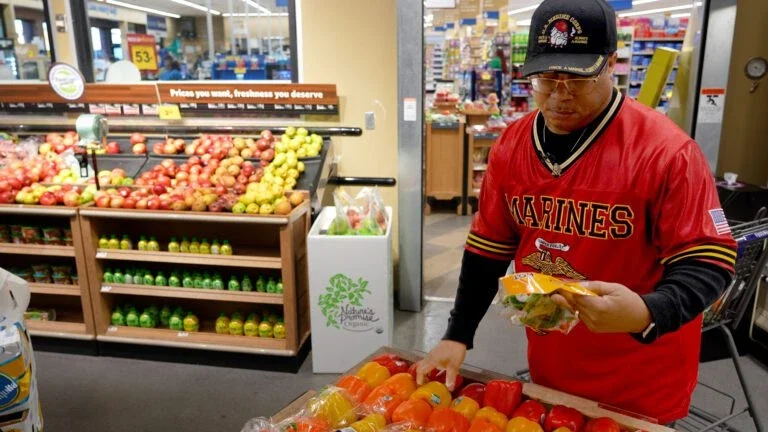More than 4 in 5 Americans believe U.S. healthcare should offer more food and nutrition programs to treat and manage illnesses.
Key Takeaways:
- 0%%
of the public believe Food is Medicine can help improve the quality of health in the U.S.
- 0
said Food is Medicine should be covered by public and private insurance
- 0%%
of the public said Food is Medicine would personally help them eat better
The polling data shows that Americans want to eat and live better and are interested in Food is Medicine programs to support them in living their healthiest lives.
Read the Full Report
download pdf
Kenny Joyner, U.S. Marine Corps Veteran and EatWell Participant © The Rockefeller Foundation.
More Reports
Building a Public Good: Policy and Infrastructure Development in South Korea's Universal Free, Environment-Friendly School Lunch Program School meal programs are powerful investments that improve children's wellbeing and strengthen local economies, with South Korea's transformation to a universal, climate-friendly system reaching over 5.26 million students daily demonstrating how strategic policy can unlock multisectoral benefits.
A Mandate for International Cooperation: G20 Popular Opinion on Global Action A follow-up survey of nearly 20,000 people across 18 G20 countries reveals strong support for international cooperation, with 60% willing to accept national compromise to solve global challenges. Preventing wars, providing access to food and clean water, and tackling climate change topped the list as priority issues for respondents. Read the latest survey for more.
Building Climate Resilient School Feeding Programs: Executive Summary New Stanford research reveals that climate change is driving up school meal costs and threatening food security for 466 million children worldwide, but shifting to regeneratively-sourced and more diverse foods could feed nearly 8 million more children while building climate resilience.